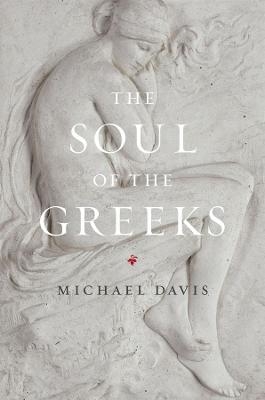
The Soul of the Greeks
An Inquiry
Seiten
2011
University of Chicago Press (Verlag)
978-0-226-13796-4 (ISBN)
University of Chicago Press (Verlag)
978-0-226-13796-4 (ISBN)
Analyzes works by Homer, Herodotus, Euripides, Plato, and Aristotle to reveal how the ancient Greeks portrayed and understood what the author calls 'the fully human soul'. Beginning with Homer's "Iliad", this work lays out the tension within the soul of Achilles between immortality and life.
The understanding of the soul in the West has been profoundly shaped by Christianity, and its influence can be seen in certain assumptions often made about the soul: that, for example, if it does exist, it is separable from the body, free, immortal, and potentially pure. The ancient Greeks, however, conceived of the soul quite differently. In this ambitious new work, Michael Davis analyzes works by Homer, Herodotus, Euripides, Plato, and Aristotle to reveal how the ancient Greeks portrayed and understood what he calls 'the fully human soul'. Beginning with Homer's "Iliad", Davis lays out the tension within the soul of Achilles between immortality and life. He then turns to Aristotle's "De Anima" and "Nicomachean Ethics" to explore the consequences of the problem of Achilles across the whole range of the soul's activity. Moving to Herodotus and Euripides, Davis considers the former's portrayal of the two extremes of culture - one rooted in stability and tradition, the other in freedom and motion - and explores how they mark the limits of character formation.
Davis then shows how Helen and Iphigeneia among the Taurians serve to provide dramatic examples of Herodotus' extreme cultures and their consequences for the soul. The book concludes with Plato's presentation of the soul of Socrates as self-aware and nontragic, even if it is necessarily alienated and divided against itself.
The understanding of the soul in the West has been profoundly shaped by Christianity, and its influence can be seen in certain assumptions often made about the soul: that, for example, if it does exist, it is separable from the body, free, immortal, and potentially pure. The ancient Greeks, however, conceived of the soul quite differently. In this ambitious new work, Michael Davis analyzes works by Homer, Herodotus, Euripides, Plato, and Aristotle to reveal how the ancient Greeks portrayed and understood what he calls 'the fully human soul'. Beginning with Homer's "Iliad", Davis lays out the tension within the soul of Achilles between immortality and life. He then turns to Aristotle's "De Anima" and "Nicomachean Ethics" to explore the consequences of the problem of Achilles across the whole range of the soul's activity. Moving to Herodotus and Euripides, Davis considers the former's portrayal of the two extremes of culture - one rooted in stability and tradition, the other in freedom and motion - and explores how they mark the limits of character formation.
Davis then shows how Helen and Iphigeneia among the Taurians serve to provide dramatic examples of Herodotus' extreme cultures and their consequences for the soul. The book concludes with Plato's presentation of the soul of Socrates as self-aware and nontragic, even if it is necessarily alienated and divided against itself.
Michael Davis is professor of philosophy at Sarah Lawrence College.
| Erscheint lt. Verlag | 19.4.2011 |
|---|---|
| Reihe/Serie | Emersion: Emergent Village resources for communities of faith |
| Sprache | englisch |
| Maße | 16 x 23 mm |
| Gewicht | 454 g |
| Themenwelt | Geisteswissenschaften ► Philosophie ► Philosophie Altertum / Antike |
| Geisteswissenschaften ► Philosophie ► Philosophie des Mittelalters | |
| Sozialwissenschaften ► Politik / Verwaltung ► Politische Theorie | |
| ISBN-10 | 0-226-13796-1 / 0226137961 |
| ISBN-13 | 978-0-226-13796-4 / 9780226137964 |
| Zustand | Neuware |
| Haben Sie eine Frage zum Produkt? |
Mehr entdecken
aus dem Bereich
aus dem Bereich
mit Sokrates, Seneca, Platon & Co. im Gespräch
Buch | Hardcover (2023)
FinanzBuch Verlag
CHF 25,20


